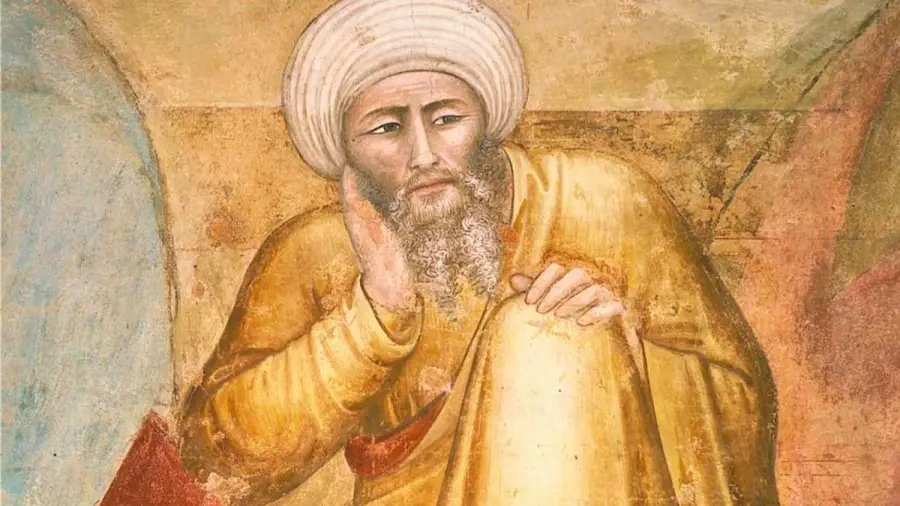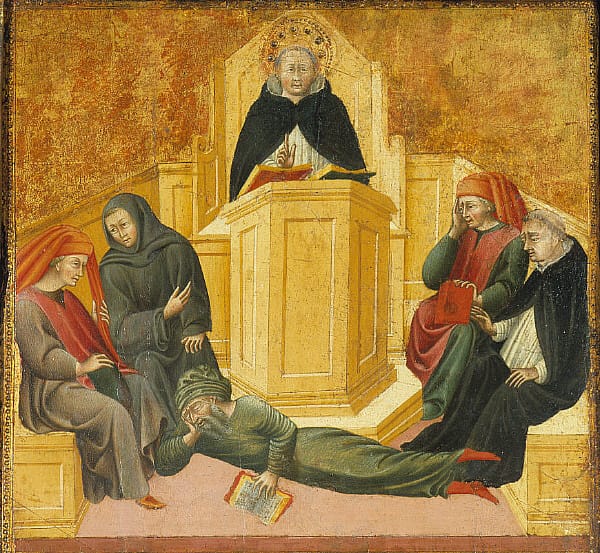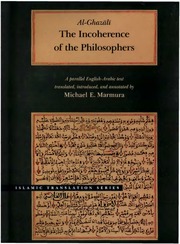Faith, Reason, and the Middle East’s Intellectual Crossroads

How a 12th-century dialogue between two great Muslim thinkers continues to shape the region’s choices today.
A Debate That Still Resonates
In the late eleventh century, the great theologian Abu Hamid al-Ghazali published Tahāfut al-Falāsifa (The Incoherence of the Philosophers). It was a masterful critique of those who, influenced by Greek metaphysics, attempted to explain ultimate realities through philosophy alone. Ghazali did not reject reason outright — he valued logic, mathematics, and medicine — but he warned against treating them as substitutes for divine revelation in matters of creation, resurrection, and the eternal. His caution was intended to protect the integrity of belief, to remind scholars and rulers alike that knowledge must be framed by revelation.
Nearly a century later, in Muslim Spain, Ibn Rushd (Averroes) answered with Tahāfut al-Tahāfut (The Incoherence of the Incoherence). A jurist and physician as well as a philosopher, Averroes defended philosophy as a legitimate partner of revelation. He argued that truth is one, and that when there appears to be tension between revelation and reason, it is human interpretation that requires refinement. Far from weakening faith, rational inquiry in his view dignified it.
Both men spoke from within Islam’s rich intellectual tradition. Ghazali sought to safeguard the primacy of revelation, anchoring religion against speculative drift. Averroes sought to integrate philosophy into faith, ensuring Islam remained intellectually confident and conversant with science. The debate was not between belief and unbelief, but between two visions of how belief should engage with human reason.
Intellectual Legacies and Their Modern Echoes
The dialogue between Ghazali and Averroes left a deep mark. Ghazali’s emphasis on theological orthodoxy shaped Sunni consensus and fortified Islamic spirituality, especially through his synthesis of law, theology, and Sufism. Averroes’s works, though less influential at home, travelled widely in Latin translation. In Europe they inspired Thomas Aquinas and others to reconcile Aristotelian philosophy with Christian theology, laying intellectual foundations that nourished modern science.

In the Islamic world, philosophy did not vanish, but it assumed different forms. Shi’a thinkers, such as Mulla Sadra in the 17th century, developed sophisticated systems that merged rationalism and mysticism. Ismaili communities maintained philosophical traditions in esoteric form. Sufism deepened the experiential dimension of faith, sometimes absorbing philosophical insights into poetry and mysticism. Rationalist currents like the Muʿtazila, though marginalized, continued to influence reformist thought centuries later.
Thus, the Ghazali–Averroes debate cannot be reduced to a simple victory or loss. It opened a spectrum of positions within Islam: from those prioritizing revelation as ultimate authority, to those integrating philosophy into the service of religion, to those emphasizing mystical experience over both.
Why It Matters Today
Fast forward to the present, and the same tension — between an emphasis on revealed tradition and a confidence in reason — continues to animate Middle Eastern politics and culture. Not as abstract theology, but as a question of governance, identity, and the future.
- One orientation stresses pragmatism, scientific education, and interfaith dialogue. It seeks to demonstrate that Islam can be confident in the modern world without losing its essence.
- The other orientation warns against compromise, emphasizing fidelity to tradition, authenticity, and resistance to outside pressures.
Both claim legitimacy from within Islam. Both appeal to different aspects of the heritage left by Ghazali and Averroes. And both compete for the imagination of Muslim societies today.
This is visible in the language of leaders, in educational reforms, in how societies approach questions of peace, pluralism, and modernity. Some institutions frame coexistence and scientific advancement as expressions of Islamic duty. Others denounce such moves as betrayals, insisting that strength lies in purity and resistance.
Diversity of Approaches Within Islam
It is important to stress that Islam has never been monolithic, and still today communities engage this legacy differently:
- Sunni traditions often emphasize Ghazali’s caution, but within them are reformist voices invoking Averroes to argue for contextual interpretation and renewal.
- Shi’a thought, particularly in Iran and Iraq, has produced major philosophers who sought to integrate reason and revelation, though in politics it often leans toward clerical authority.
- Ismaili Muslims maintain a strong tradition of philosophical theology, historically closer to Averroes’s openness.
- Sufi orders often sidestep rationalist vs. literalist divides, seeking balance through spiritual insight, yet their poetry and philosophy reflect both legacies.
- Smaller groups such as Ibadis and Ahmadis also show nuanced engagements, with strong emphasis on education, law, and reasoned interpretation.
This diversity shows that the Ghazali–Averroes dialogue is not a relic of the past but a living prism through which Muslims continually negotiate the relationship of faith to knowledge.
Toward a New Synthesis?
Some scholars see signs that the Muslim world may be moving toward its own version of the reconciliation that Aquinas achieved in Christianity. Fazlur Rahman Malik in the 20th century argued for a “double movement” of interpretation: reading scripture in its historical context and re-applying its principles in modern life. Mohammed Abed al-Jabri called for a critical recovery of the rationalist heritage of Averroes as part of an “Arab Enlightenment.” Thinkers like Abdolkarim Soroush in Iran likewise call for opening the doors of reason within faith.
At the same time, traditional voices continue to warn that over-rationalization risks eroding the spiritual essence of Islam. For them, Ghazali remains a model of balance: a scholar who defended orthodoxy while revitalizing spirituality, ensuring that Islam remained a religion of both law and heart.
These two instincts — caution and openness — are not mutually exclusive. Many Muslims admire both Ghazali and Averroes, seeing in their dialogue a reminder that religion must always balance the safeguarding of tradition with engagement in inquiry.

Geopolitics and the Intellectual Divide
Geopolitical alignments in today’s Middle East can often be read through this prism. Some states foreground science, education, and interfaith diplomacy as pillars of stability, echoing an Averroist confidence in reason. Others emphasize resistance and authenticity, echoing Ghazali’s insistence that revelation is the ultimate anchor.
This does not mean Ghazali produced extremism or Averroes secularism — both men were faithful Muslims — but that their differing emphases continue to frame how societies balance tradition and modernity.
Understanding this helps explain why debates over curricula, peace treaties, or cultural reforms resonate so deeply. They are not just about policy but about how communities see the relationship between faith and the changing world.
Why the World Should Care
The question is not whether Islam is “compatible” with modernity — a reductive framing — but how Muslims themselves choose to draw on their intellectual heritage. The Ghazali–Averroes debate offers two venerable models: one that emphasizes safeguarding revelation, another that emphasizes harmonizing it with reason. Both are authentically Islamic. Both have inspired generations.
The world has a stake in how this balance evolves. A Middle East that reconciles faith and inquiry can be a partner in peace, innovation, and coexistence. One that retreats into suspicion risks prolonged conflict. But the decision lies within the Muslim world itself — and it will be guided not by foreign pressure, but by how Muslims engage their own tradition.
Conclusion
Nine centuries ago, Ghazali and Averroes embodied two enduring instincts of Islamic thought. Their dialogue was not resolved then, and it is not resolved now. But it remains a precious resource: a reminder that within Islam, there has always been space for both caution and inquiry, tradition and philosophy, revelation and reason.
The challenge before the Middle East today is not to choose one and discard the other, but to find a new synthesis — faithful to tradition, yet open to knowledge; confident in revelation, yet unafraid of reason.
The future may depend on how this synthesis is achieved. And in that sense, the voices of two scholars who debated a millennium ago continue to echo in the choices of our own century.









